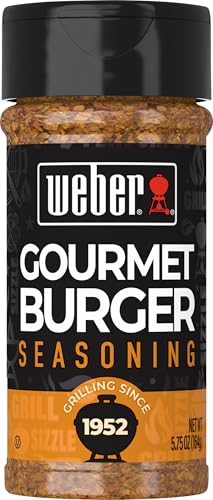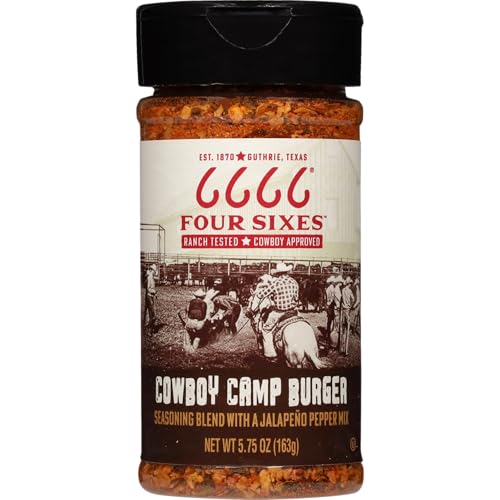Key Takeaways
- Burgers in TV shows symbolize character development, humor, and cultural moments that resonate with audiences, making them iconic elements in storytelling.
- Shared burger experiences often deepen character relationships, as seen in shows like “Bob’s Burgers” and “Parks and Recreation.”
- Memorable burger moments blend humor with relatable themes, creating unforgettable scenes that engage viewers, such as Joey’s food-sharing dilemma in “Friends.”
- Animated series creatively showcase unique burger inventions, highlighting their role in family dynamics and adventure, exemplified by “Bob’s Burgers” and “Futurama.”
- Fan reactions to burger moments demonstrate nostalgia and a sense of community, leading to social media trends and culinary experiments inspired by their favorite shows.
- Understanding the cultural significance of burgers in TV enhances the viewing experience while inspiring creativity and connection through food.
There’s something undeniably special about burgers in TV shows. They often serve as more than just a meal; they become iconic symbols of character moments, humor, and even life lessons. From the sizzling patties to the perfectly melted cheese, these delicious scenes stick with us long after the credits roll.
The Iconic Role of Burgers in TV Shows
Burgers often symbolize more than just delicious food in TV shows. They represent character development, humor, and cultural moments that resonate with audiences. Viewers connect with burgers, turning them into memorable parts of iconic scenes.
Characters’ relationships often deepen over a shared burger. For instance, in Bob’s Burgers, Bob’s passion showcases how a simple meal can bring family together. The quirky humor reminds us that even the most whimsical combinations can strike a chord.
Moreover, burgers appear in classic shows highlighting life lessons. In Parks and Recreation, Leslie Knope’s affection for a burger signifies her love for her town and the people in it. It’s not just food; it’s about community.
Burgers also add a touch of humor. In Friends, the infamous “Joey doesn’t share food” moment illustrates a character’s commitment to culinary satisfaction while delivering laughs. The blend of food and humor creates unforgettable TV moments.
Through these examples, it’s clear that burgers play a vital role in storytelling. They bridge connections, spark laughter, and remind us of our shared experiences. Each bite taken or shared in these shows leaves a lasting impression, making burgers an iconic element of television.
Notable Burger Moments
TV shows often present unforgettable burger moments that resonate deeply with viewers. These scenes not only celebrate the love for burgers but also highlight their role in storytelling.
Classic Sitcoms
Classic sitcoms feature many iconic burger scenes, blending humor with character development. In “Seinfeld,” Jerry and George bond over burgers, showcasing their friendship as they navigate life’s absurdities. Burgers symbolize their carefree moments together and emphasize the show’s relatable comedic beats. Also, in “The Simpsons,” Homer’s passion for donuts finds a playful rival in his love for burgers, creating laugh-out-loud scenarios that enhance both his character and the show’s overall charm.
Animated Series
Animated series often elevate burger moments to epic proportions. In “Bob’s Burgers,” each episode introduces unique burger creations that reflect the family’s quirky dynamics. The “Burger of the Day” offers creativity and culinary fun, showcasing how burgers embody family connections and humorous interactions. Additionally, “Futurama” presents memorable scenes where Fry discovers new, extravagant types of burgers, merging food with futuristic elements and slapstick comedy. Through these animated moments, burgers become symbols of adventure and camaraderie, making them unforgettable to fans.
The Cultural Impact of Burgers on Television
Burgers serve as cultural touchstones in television, influencing both characters and viewers alike. They’ve sparked conversations, shaped memorable moments, and inspired culinary creativity. In many shows, burgers signify more than a meal; they embody friendship, love, and life’s simple pleasures.
I think about “Bob’s Burgers,” where each episode showcases unique burger creations that elevate family dynamics. The Belcher family’s recipes not only feed their customers but also deepen their bonds. Similarly, in “Parks and Recreation,” Leslie Knope’s burger obsession mirrors her passion for community, illustrating how food connects people.
Humor surrounding burgers often captivates audiences. “Friends” offers classic moments, like Joey’s infamous line about food sharing. That scene resonates with anyone who’s ever fought over food, highlighting the communal joy of eating simply.
In classic sitcoms, burgers act as catalysts for connection. In “Seinfeld,” Jerry and George’s burger escapades reflect their friendship amid life’s absurdities. “The Simpsons” thrives on Homer’s love affair with burgers, solidifying his quirky charm.
Animated series, too, creatively explore burger culture. “Futurama” features outrageous burger inventions that amplify adventure and absurdity, showcasing the boundless possibilities of this beloved dish. Through these examples, it’s clear that burgers play an indispensable role in storytelling, bridging connections and invoking laughter.
Understanding the cultural significance of burgers enriches our viewing experiences. As a burger enthusiast, I take inspiration from these iconic moments, continuously experimenting with my creations, celebrating the power of food to unite and entertain.
Fan Reactions and Legacy
Fan reactions to memorable burger moments in TV shows reveal their deep affection for these iconic scenes. Viewers often express nostalgia, recalling how particular burgers triggered laughter or emotional connections. For instance, the hilarious “Joey doesn’t share food” line from Friends not only captured Joey’s character but also sparked countless memes and discussions among fans. This resonance highlights how burgers serve as catalysts for shared experiences.
The legacy of these burger moments extends beyond the screen. In shows like Bob’s Burgers and Parks and Recreation, burgers become symbols of unity and community, influencing fans to recreate similar experiences in their own lives. Social media buzz often centers around these moments, with fans posting their interpretations of beloved burgers, showcasing a desire to connect through food.
Culturally, burgers in TV series have inspired countless culinary experiments. Fans take cues from the exaggerated burger creations seen in The Simpsons or Futurama, leading to unique culinary inventions at home. This legacy also drives the conversation around food creativity, pushing aspiring cooks to explore bold new flavors and combinations. Ultimately, the impact of burgers in television continues, fostering a sense of belonging and creativity within the cooking community.
Conclusion
Burgers in TV shows are more than just tasty treats; they’re woven into the fabric of our favorite moments. They bring characters together and create laughter that sticks with us long after the credits roll.
These iconic scenes remind me of the simple joys in life and how food can be a bridge between people. Whether it’s a heartfelt family moment or a hilarious mishap, burgers have a unique way of making those experiences unforgettable.
I love how these shows inspire us to cherish our connections and even experiment in the kitchen. So next time you bite into a burger, think of the stories behind it and how it connects us to the characters we adore.





